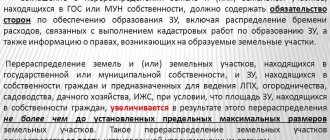From the article you will learn:
Garage construction cooperative , in other words, GSK , is an organization formed on the basis of voluntary membership of both citizens and legal entities. As the name suggests, the purpose of the association of car owners is the construction and subsequent operation of garages. Since the head elected at the general meeting acts on behalf of the cooperative, the question arises whether it is necessary to formalize labor relations with him. In this regard, we will consider in more detail whether it is necessary to conclude an employment contract with the chairman of the GSK.
Who is the chairman of a garage cooperative?
The person elected to this position represents the interests of a certain union of motorists, while possessing certain rights and powers. He may be a member of the cooperative himself or invited from outside. In many cases, this work is paid symbolically.
GSK, as a non-profit organization, is included in a special register of the Russian Federation. Data about its head is also recorded there.
Since the created associations of car owners are private and not public, their representatives are not considered officials. However, their actions are regulated by the laws of the Russian Federation and the Charter of the organization.
Own your business in GSK garages and garage boxes. Part 1
According to paragraph 1 of Art. 50 of the Civil Code of the Russian Federation, legal entities are divided into commercial and non-profit organizations. Non-profit organizations in accordance with paragraph 3 of this article can be created in the form of a consumer cooperative, which includes, among other things, housing and construction and garage cooperatives, horticultural, gardening and other cooperatives. That is, in the list of cooperatives you can see a garage and a housing construction cooperative, which means another combination is possible - a garage and construction cooperative, because this is not prohibited by law.
The concept of a consumer cooperative is disclosed in paragraph 1 of Art. 123.2 of the Civil Code of the Russian Federation, according to which a consumer cooperative is recognized as a voluntary association of citizens or citizens and legal entities based on membership in order to satisfy their material and other needs, carried out by combining property share contributions by its members.
A garage is a building and structure, premises for parking (storage), repair and maintenance of cars, motorcycles and other vehicles; can be either part of a residential building (built-in-attached garages) or a separate building (clause 3.3 “SP 113.13330.2016. Code of rules. Car parking. Updated version of SNiP 21-02-99*”, approved by Order of the Ministry of Construction of Russia dated 07.11.2016 N 776/pr).
Consequently, a garage-building cooperative (GSBC) is a non-profit organization that is a membership-based voluntary association of citizens or citizens and legal entities to meet their needs for the construction and maintenance of garages to accommodate vehicles.
GSK is a non-profit organization created to meet the material needs of the members of the cooperative, and, therefore, based on the norm of paragraph 1 of Art. 123.1 of the Civil Code of the Russian Federation, does not pursue profit as the main goal of its activities and does not distribute the profits received among participants. GSK is the owner of its property (clause 4 of article 123.1 of the Civil Code of the Russian Federation) and in accordance with the provisions of Chapter. 4 of the Civil Code of the Russian Federation, in particular § 1, can open current and other accounts in banks; have seals and stamps; carry out on its own behalf any transactions not prohibited by law in order to achieve its statutory goals; acquire property and non-property rights.
At the same time, the GSK is liable for its obligations with all its property, but is not responsible for the obligations of its members. Members of the GSK, in turn, jointly and severally bear subsidiary liability for its obligations within the limits of the unpaid part of the additional contribution of each member of the cooperative (Clause 2 of Article 123.3 of the Civil Code of the Russian Federation).
What legal acts regulate the activities of GSK
There is no separate special regulatory legal act that regulates the activities of GSK. Therefore, the GSK is subject to the general provisions of the Civil Code of the Russian Federation on legal entities, especially non-profit corporate organizations, in particular the provisions of § 1, 6 (Articles 123.1 - 123.3) Ch. 4 Civil Code of the Russian Federation. In a number of cases, the norms of other laws on certain types of cooperatives can be applied by analogy, for example, the norms of the Federal Law of December 30, 2004 N 215-FZ “On Housing Accumulative Cooperatives”, etc., to the extent that does not contradict the goals of creation and the characteristics of the GSK (Appeal Determination of the Novosibirsk regional court dated 04/21/2016 in case No. 33-3910/2016, Appeal ruling of the Tambov Regional Court dated 03/19/2012 in case No. 33-671). However, there is an opposite position, according to which the norms of the said Law are not applicable to GSK (Appeal ruling of the Omsk Regional Court dated June 14, 2017 in case No. 33-4074/2017, Appeal ruling of the Samara Regional Court dated August 29, 2016 in case No. 33-10929/2016 ).
There are also cases in judicial practice of the extension of norms and other legal acts to legal relations with the participation of the State Insurance Committee, for example, the Law of the Russian Federation of June 19, 1992 N 3085-1 “On consumer cooperation (consumer societies, their unions) in the Russian Federation”, the Federal Law of April 15, 1998 N 66-FZ “On gardening, gardening and dacha non-profit associations of citizens”, Federal Law dated July 18, 2009 N 190-FZ “On Credit Cooperation”, as well as the provisions of the Housing Code of the Russian Federation (Resolution of the Tenth Arbitration Court of Appeal dated April 3, 2015 N 10AP- 16892/2014 in case No. A41-55922/14 (left unchanged by the Resolution of the Arbitration Court of the Moscow District dated July 31, 2015 No. F05-9429/2015)). But such cases are rare.
Formally, the USSR Law of May 26, 1988 N 8998-XI “On Cooperation in the USSR” (hereinafter referred to as the USSR Law on Cooperation), which can be applied limitedly only to the extent that does not contradict the norms of the Civil Code of the Russian Federation and other federal laws on cooperatives, has not lost force. Courts continue to refer to this Law when resolving disputes, incl. related to GSK (Appeal ruling of the Moscow City Court dated January 12, 2018 in case No. 33-561/2018). The norms of the Federal Law of January 12, 1996 N 7-FZ “On Non-Profit Organizations” do not apply to GSK (clause 3 of Article 1 of the said Law). Law of the Russian Federation of June 19, 1992 N 3085-1 “On consumer cooperation (consumer societies, their unions) in the Russian Federation” does not apply to garage and construction cooperatives (Article 2 of this Law).
Also taken into account in law enforcement are the provisions of the GSK charter, which are applied to the extent that does not contradict the law (Decision of the Supreme Court of the Russian Federation dated November 17, 2015 N 5-KG15-157, Appeal determination of the Supreme Court of the Republic of Sakha (Yakutia) dated July 19, 2017 in case No. 33 -2730/2017, Appeal ruling of the Moscow City Court dated September 20, 2017 in case No. 33-21236/2017).
The procedure for creating the GSK. GSK Charter
The GSK is created by a decision of the founders, which is adopted at a general meeting, conference or congress (clause 3 of article 123.1 of the Civil Code of the Russian Federation). The founders are citizens or citizens and legal entities at such a meeting:
1) decide on the creation of the GSK; 2) approve the charter of the GSK; 3) form (form) the organs of the GSC. The charter of the GSK must necessarily contain information about: 1) the name of the GSK; 2) location of the cooperative; 3) the subject and purposes of the activities of the GSK (the period for the creation of the GSK may also be indicated); 4) the composition, amount, conditions and procedure for making share contributions, liability for violation of obligations to make contributions; 5) the composition and competence of the GSK bodies, the procedure for their decision-making, including on issues on which decisions are made unanimously or by a qualified majority of votes; 6) the procedure for covering losses incurred by members of the cooperative.
The charter may contain other information in addition to the above, for example, information about the features and procedure for implementing the goals of the GSK, the composition and procedure for managing property, etc. According to paragraph. 2 p. 2 art. 123.2 of the Civil Code of the Russian Federation, the name of the cooperative must contain an indication of the main purpose of its activities, as well as the word “cooperative”, for example: “Garage and construction cooperative “Vasilek”.
The created cooperative is subject to state registration in the manner prescribed for the registration of legal entities (Chapter VI of the Federal Law of 08.08.2001 N 129-FZ “On State Registration of Legal Entities and Individual Entrepreneurs”, hereinafter referred to as the Law on State Registration). The list of documents submitted for state registration is specified in Art. 12 of the Law on State Registration, in particular, in the application for state registration, the State Joint Stock Company provides information about the founders, information about the address (location) of the permanent body of the State Joint Stock Company (for example, the chairman), etc., and the charter of the cooperative is also presented.
GSK governing bodies
The basic provisions on management in a cooperative are established by Art. 65.3 of the Civil Code of the Russian Federation, according to clause 1 of which the supreme governing body of the GSK is the general meeting of its members. The charter of the cooperative must define the competence of the supreme body, incl. issues falling within the exclusive competence of the body, as well as the procedure for convening this body and making decisions. In paragraph 2 of Art. 65.3 of the Civil Code of the Russian Federation contains a list of issues that can be attributed to the exclusive competence of the highest body of the Civil Code.
The list is open; the law or the charter of the cooperative may change, incl. be supplemented. For example, the legislator includes within the competence of the supreme body: a) approval and amendment of the charter of the State Joint Stock Company; b) determining the procedure for admitting and expelling members of the cooperative; c) the formation of other bodies of the GSK and the early termination of their powers, but in this case, the charter of the GSK may fall within the competence of another collegial body; d) approval of annual reports and accounting (financial) statements, if the charter of the corporation in accordance with the law does not include this authority within the competence of other collegial bodies; e) making decisions on the reorganization and liquidation of the State Joint Stock Company, on the appointment of a liquidation commission (liquidator) and on the approval of the liquidation balance sheet; f) other powers established by law or charter.
The decision of the supreme body of the GSK is made by a majority vote of the meeting participants, subject to the presence of a quorum - at least fifty percent of the total number of members of the cooperative (Clause 1 of Article 181.2 of the Civil Code of the Russian Federation).
In addition to the supreme body, executive bodies are created in the cooperative - a sole executive body, and a collegial executive body can also be formed. According to the general rule (clause 3 of Article 65.3 of the Civil Code of the Russian Federation), a sole executive body is formed (for example, the chairman of a cooperative). The charter of a cooperative may provide for the granting of powers of such a body to several persons acting jointly, or the formation of several sole executive bodies acting independently of each other (paragraph 3, paragraph 1, article 53 of the Civil Code of the Russian Federation). Both an individual and a legal entity can act as a sole executive body, but, as a rule, such a body at the GSK is a citizen.
The GSK charter or law may provide for the creation of a collegial executive body (board, directorate, bureau, etc.).
The competence and procedure for the formation of executive bodies are established by the GSK charter. The competence of the executive body includes issues that are not within the competence of the supreme body of the GSK and other bodies (collegial body). For example, the charter of the GSK may include the following powers within the competence of the executive bodies: a) convening a general meeting of members of the GSK and preparing for it; b) planning the activities of the GSK, drawing up estimates and staffing, forming the apparatus of executive bodies; c) management of the current activities of the GSK and implementation of decisions of the general meeting; d) management (disposal) of the financial resources of the cooperative in accordance with the plan approved by the general meeting, etc.
In addition, it is the executive body of the GSK that represents the cooperative in government bodies, courts, etc. On a par with the executive bodies of paragraph 4 of Art. 65.3 of the Civil Code of the Russian Federation provides for the possibility of creating a special collegial body (supervisory or other board) that monitors the activities of executive bodies and performs other functions assigned to it by law or charter. For example, such a body may decide on the participation of GSK in the creation of other legal entities and the opening of branches.
Persons exercising the powers of the sole executive bodies of corporations and members of their collegial executive bodies cannot constitute more than one quarter of the composition of the collegial management bodies of the State Corporation and cannot be their chairmen.
Thus, the charter of the GSK must necessarily provide for the formation of: a) the highest management body of the GSK - the general meeting - consisting of members of the cooperative; b) the sole executive body of GSK. Optional (not obligatory to form) bodies can be: a) collegial executive body of the GSK (board, directorate, etc.); b) collegial body of the GSK (supervisory and other council).
The procedure for admission and resignation from the GSK
Requirements for members of the GSK, as well as the procedure for admitting and leaving the GSK must be defined in the charter of the cooperative. As a rule, citizens who have reached the age of 16 can become members of a cooperative. Such requirements for the age of citizens - members of the cooperative, in particular, are contained in Art. 12 of the USSR Law on Cooperation. Members of the GSK can be both citizens and legal entities.
The charter of the GSK defines the body of the cooperative that is authorized to make a decision on admission to membership of the cooperative: the general meeting of members of the cooperative, or the sole/collegial executive body of the cooperative, the collegial body of the GSK. In order to more quickly and flexibly make a decision on admission to membership of a cooperative, it is better to delegate the authority to admit members to a body that operates permanently (for example, a collegial executive body).
Admission to membership in the GSK is, as a rule, carried out on the basis of a written application from a candidate member of the cooperative, while the member accepted into the cooperative pays a share contribution in the manner and within the time limits established by the charter.
It is permissible to withdraw from the membership of the cooperative upon an application submitted within the time frame and in the manner established by the charter of the GSK. In this case, the withdrawn member is paid the value of the share in cash or in kind by the provision of property. In particular, in this case the norms of Art. 106.5 of the Civil Code of the Russian Federation on termination of membership in a production cooperative (Appeal ruling of the Samara Regional Court dated May 15, 2013 in case No. 33-4241/2013).
Expulsion from the cooperative is possible by decision of the general meeting (conference, etc.) of the members of the cooperative on the grounds established by the charter, for example, for: a) failure to comply with the requirements of the charter and bodies of the State Joint Stock Company; b) causing damage to GSK property, violating the rules for maintaining and operating a garage, etc.
Also, the charter of the GSK may provide for a rule on expulsion from members of the GSK in case of non-payment of the share contribution upon joining the cooperative (Clause 4, Article 12 of the USSR Law on Cooperation).
The decision to expel from members of the State Committee can be appealed in court (Clause 4 of Article 12 of the USSR Law on Cooperation, Articles 181.3 - 181.4 of the Civil Code of the Russian Federation, Appeal ruling of the Moscow City Court dated 02/14/2017 in case No. 33-3966/ 2017, Appeal ruling of the Moscow City Court dated 02/10/2017 in case No. 33-5241/2017, Appeal ruling of the Supreme Court of the Republic of Crimea dated 01/31/2017 in case No. 33-258/2017).
Rights and obligations of GSK members
The rights and obligations of the members of the GSK are determined by the charter of the cooperative, since no separate requirements are established in the law, with the exception of Art. 123.3 of the Civil Code of the Russian Federation, which defines the responsibilities of members of consumer cooperatives.
According to paragraph 1 of this article, within three months after the approval of the annual balance sheet, members of the consumer cooperative are obliged to cover the resulting losses by making additional contributions. If this obligation is not fulfilled, the cooperative may be liquidated in court at the request of creditors.
As a guideline when establishing the rights and obligations of members of the State Joint Stock Company, you can take the norms of other laws on certain types of cooperatives, as well as Art. 13 of the USSR Law on Cooperation. For example, a member of a cooperative has the right to: 1) participate in the activities of the GSK and the management of its affairs, elect and be elected to the bodies of the GSK, take part in the general meeting of members of the GSK with voting rights, make proposals for improving the activities of the GSK; 2) use the property of the cooperative, as well as receive a garage or parking space in accordance with the contributed share, alienate your share (garage); 3) gain access to information about the activities of the GSK, get acquainted with the reports of the GSK bodies, financial documentation, etc.
Among the responsibilities of members of the cooperative, the following can be identified: 1) comply with the charter and decisions of the GSK bodies; 2) pay the established contributions in a timely manner and in full; 3) maintain your garage in accordance with the requirements of the law, incl. sanitary, fire safety, technical and other standards; 4) participate in the costs of maintaining the common property of the GSK, other duties in accordance with the charter.
Reorganization and liquidation of GSK
The reorganization and liquidation of the GSK can be carried out by decision of the general meeting (conference, congress, etc.) of the members of the cooperative (clause 1, article 57, clause 2, article 61 of the Civil Code of the Russian Federation). The charter of the cooperative may provide for granting the right to make a similar decision to other bodies of the State Joint Stock Company. The decision is usually made by a qualified majority of votes, unless otherwise provided by the charter.
The reorganization is carried out in compliance with the general requirements of Art. Art. 57 - 60.2 of the Civil Code of the Russian Federation. As a rule, a reorganization commission is created, which carries out measures to carry out the reorganization. According to paragraph 3 of Art. 123.2, by decision of its members, a cooperative may be transformed into a public organization, association (union), autonomous non-profit organization or foundation. Liquidation of GSK can be carried out: a) on a voluntary basis. The decision on liquidation is made by the general meeting of the GSK or other body authorized by the charter and is made taking into account the provisions of Art. Art. 61 - 64.1 Civil Code of the Russian Federation. In this case, a liquidation commission is created, which carries out all actions related to the liquidation of GSK; b) by court decision. A demand for liquidation of a cooperative may be made by: - creditors, incl. in the case specified in paragraph 1 of Art. 123.3 of the Civil Code of the Russian Federation in case of failure by members of the GSK to cover the losses of the cooperative with additional contributions; - members of the GSK in the event that it is impossible to achieve the goals for which the GSK was created, including in the event that the implementation of activities becomes impossible or is significantly hampered; - by an authorized body in the event of systematic implementation of activities that contradict the statutory goals of the creation of the State Joint Stock Company, systematic or gross violation of the law, or implementation of activities prohibited by law. Liquidation by court decision is carried out taking into account the provisions of paragraphs 4 - 5 of Art. 61 Civil Code of the Russian Federation.
Thus, GSK is a legal entity in the form of a non-profit corporate organization, based on membership, a voluntary association of citizens or citizens and legal entities in order to meet their needs for the construction and maintenance of garages to accommodate vehicles. The decision to create the GSK is made by its founders - members of the GSK. The management of the State Joint Stock Company, its acquisition of civil rights and the performance (fulfillment) of duties is carried out through the bodies of the State Joint Stock Company, the system and competence of which is determined by the charter of the cooperative, and the sole executive body of the State Joint Stock Company and the supreme body - the general meeting of members of the State Joint Stock Company are necessarily formed. The charter of the cooperative also determines the procedure for admitting and expelling members of the GSK, as well as the rights and obligations of members of the cooperative.
Prepared based on material by S.A. Slesarev, private practicing lawyer, expert, Mtsensk
What are the duties and rights of the head of the GSK according to the law?
The duties of the chairman of the garage cooperative include consideration of issues related to the control of the financial activities of the organization, execution of decisions of general meetings, representation of the Civil Code before the authorities, compliance with the law, and the Charter of the shareholders’ cooperative.
Job descriptions are prescribed in the constituent documents and are regulated by them.
The responsibilities of the Chairman of the GSK include:
- signing of documents;
- checking accounts;
- concluding agreements with other organizations;
- distribution of orders between shareholders;
- representation and protection of the interests of the cooperative in government agencies, tax authorities, and courts;
- monitoring the implementation of decisions made;
- scheduling meetings, notifying colleagues.
Selected to the position of head of a garage-construction cooperative, a person simultaneously receives the rights to:
- conclude agreements and transactions on behalf of the organization;
- receive remuneration for their activities, if stipulated by the Charter;
- manage funds without additional powers of attorney;
- hire security for joint property;
- engage in business in favor of the Civil Code, if the majority of shareholders voted for such actions, and the relevant provisions were enshrined in the constituent documents.
The rights and responsibilities of the chairman of a garage cooperative are negotiated during the creation of the union at the first meeting of shareholders, and then recorded in the Charter.
Is it possible to wash the car?
It is possible if wastewater drainage is provided on the territory.
In conclusion, we note that the process of organizing a garage cooperative is quite complex. A lot of time and effort will be required to draw up the Charter, collect and prepare documentation, so it is important that among the participants of the Civil Code there are legally literate people.
But if there are none, you can seek help from a lawyer or entrust the procedure to companies that provide services for preparing documents for registration, which will avoid a number of mistakes and simplify the registration procedure.
What is a general meeting and why is it needed?
Despite all the capabilities of the chairman, decisions important for the organization are made at the general meeting of shareholders and are documented in the minutes.
Each shareholder must be personally notified in advance.
Issues of changes in the Charter, elections of the chairman, his powers, remuneration for his work, commercial areas, the size of the share - everything is within the competence of the full meeting of shareholders.
A decision is accepted (or rejected) provided that a majority of members vote for (against) it (in many GCs - at least 70 percent).
By law, general meetings are recommended to be held at least twice a year.
Observation meeting
GCs can include any number of people. If the number of participants is sufficiently large, a board is selected, including a chairman, accountants, lawyers, and an audit commission.
Their task is to monitor the literacy and legality of decisions made, analyze the activities of the cooperative, and monitor the implementation of appointments and distributions. If there is a board, the responsibilities of the chairman of the garage cooperative, by law, are divided among its members, who lead the work, having the right to sign documents.
In this case, a supervisory meeting of the top management of the organization meets with a certain frequency to analyze the current situation.
How to become a member of the GSK?
The procedure is presented in the Charter. The procedure for joining the GSK consists of several stages:
- Application addressed to the chairman (considered within 30 days).
- Making various contributions.
- Obtaining a garage cooperative membership card.
- Share registration.
If the garage was inherited, the new owners can refuse membership in the GSK and receive compensation for the share payment.
Documents required for registration:
- certificates from the chairman regarding payment of the share;
- papers confirming the activities of the cooperative;
- building plan (ordered from a cadastral engineer);
- statement.
Rosreestr reviews the application and documents within 10 days, after which the participant receives a certificate of ownership.
Expulsion from the Civil Code is possible due to ignoring the duties of a member of the cooperative. The Charter specifies the reasons why members may be expelled. As a result, these persons are deprived of the opportunity to use the garage.
Before making a decision to exclude a candidate, he must be notified in writing within the time limits established by the statutory document. Such a person must be paid the amount of the share contribution and cooperative payments.
To leave the cooperative on a voluntary basis, a person submits an application addressed to the chairman, which is considered by the board of directors of the organization.
How to become the head of a garage cooperative
At the general meeting of shareholders, a decision is made on the election or re-election of a chairman. If among the shareholders there are no people willing to take the position of manager, by general agreement a person from outside who is not a member of the garage cooperative can be invited. The chairman of the cooperative, like any other shareholder, is elected by open or secret ballot, according to the rules of the meeting, by a majority vote.
Who can be the head of a garage cooperative?
Any member of the garage cooperative can become chairman with the support of the majority of shareholders.
The head of the cooperative is elected for a certain period specified in the Charter and approved by the general meeting.
Registration and drafting of an employment contract
A documented employment contract is concluded with each shareholder.
The types of activities, labor intensity, time spent, vacation, days off, rights and obligations, the amount of the contributed share and the amount of regular contributions are clearly regulated.
Formation and issuance of salaries
The possibility of remuneration for the work of the head of the organization, its amount and frequency are approved at the general meeting. If necessary, changes are made to the Charter.
The salaries of the employees of the Civil Code are issued through the cash desk, in accordance with the issued work orders.
Rules for drawing up a contract
For official employment with the chairman of the GSK, a specially authorized person must sign an employment contract. There is no approved form for this document, so it is drawn up randomly.
However, it should be taken into account that the contract must comply with the norms of labor legislation, namely, contain mandatory conditions and, if desired, optional ones. Inaccuracies in the content, as well as the lack of necessary provisions, can lead the employer to quite large fines.
For an employment contract concluded with any employee, including the chairman of the GSK, the following conditions are required:
- employer's name;
- information about the person hired for a specific staff position;
- the place where the work will be performed;
- the date from which the employee begins to perform his duties;
- date of termination of the employment relationship;
- the employee’s labor function, namely those duties that the chairman will have to perform;
- remuneration for labor is not less than the minimum wage. At this point, the employer must provide a fixed salary, and the terms of payment are not specified in detail in the contract. If you need to include information about incentives, additional payments, etc., you can make a reference to the Regulations on Remuneration, a collective agreement or other local act;
How to change the community chairman
In cases where:
- the term of office of the chairman of the garage cooperative ends;
- the head of the organization fails to fulfill his responsibilities or abuses the powers given to him;
- the elected person resigns from office;
– at the general meeting a decision is made to change the chairman.
GSK protocol on change of head
The number of those present, the number of those who voted “for”, “against”, and “abstained from making a decision” are documented.
A new leader is selected.
A shorthand transcript of the meeting may be added to the minutes, recording questions and answers.
The term of office of the new head and the results of voting on his person are noted.
How to remove the chairman from his duties
If the chairman of the State Joint Stock Company neglects his duties, exceeds his authority, is engaged in unregulated activities, and does not report to the tax authorities, a decision is made at a meeting of shareholders to remove the head from office.
In some cases, the issue can be resolved by appealing to the prosecutor's office or court.
Types of contributions
The contribution is a mandatory financial component of membership in the GSK. In general, cooperatives exist only thanks to contributions; That is why penalties are provided for delays, including exclusion from the association.
The amount of contributions is determined at meetings and amounts to the amount necessary for the construction and maintenance of garage premises.
Next, we will consider the types of GSK membership fees:
- Entrance fee . Each new member of the cooperative, upon joining the community, is required to pay a set amount, which is spent on registering the documents necessary for membership in the cooperative.
- Membership fee . Contributed to maintain the smooth functioning of the association, for utility costs and for salaries of full-time employees.
- Share contribution . It can be paid not only in money, but also in securities, transfer of property rights or movable/immovable property.
- Additional payment . Charged to cover unprofitable items of the garage cooperative.
- Target contribution . It is not paid constantly, but only at the request of the board of the cooperative to cover unscheduled expenses, for example, for repairs, maintenance or modernization of GSK property.
Problematic situations related to the position of the head of the GSK
Contacting law enforcement agencies may occur under the following conditions:
- violations of the law on energy resources (power outages in garages without a corresponding order from Energosbyt, arbitrary connection to networks);
- commercial activities not coordinated with the needs of the Civil Code, not approved at a meeting of shareholders;
- misappropriation of money from the organization, abuse of its use.
If a leader strictly observes the laws of the Russian Federation and the charter of his organization, his activities bring benefit and development.








